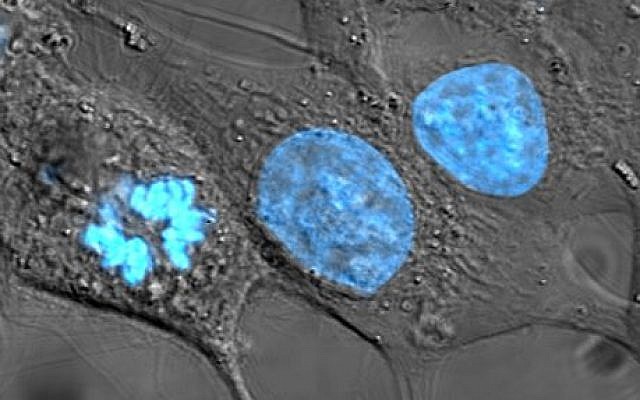Allergy triggering cells could be used to fight colon cancer, Israel study says
Tel Aviv University researchers say cancer-fighting skills of eosinophils, the white blood cells that are responsible for allergies, could pave way to new drugs
Researchers at Tel Aviv university say that new study has shown that eosinophils — white blood cells that are responsible for chronic asthma and modern allergies — may be used to eliminate malignant colon cancer cells.
The research was led by Prof. Ariel Munitz of the Department of Microbiology and Clinical Immunology at TAU’s Sackler School of Medicine and conducted by TAU doctoral student Hadar Reichman in collaboration with colleagues in Tel Aviv Medical Center’s Gastroenterology Department. It was published in Cancer Immunology Research on January 21.
“Our new research theorized that since eosinophils are capable of killing parasites and can cause damage in the lungs of asthma patients, they might play a role in cancer treatment and would be able to kill tumor cells.”
“We found that the higher the number of eosinophils in the tumor, the less severe the disease, which represents a clear correlation,” said Munitz.
The researchers subsequently tested their hypotheses in various mouse models of colorectal cancer. They discovered that eosinophils displayed potent anti-tumor activities and could directly kill tumor cells.
“We also found that when eosinophils were activated by a protein called IFN-gamma, they induced an even greater tumor-killing response,” says Prof. Munitz.
The fact that eosinophils represent a distinct weapon in fighting tumor cells “opens new avenues for treatment of cancer,” the statement said, either by encouraging eosinophils to unleash their robust anti-tumor response, or by combining treatments to harness the potent forces of both eosinophils and cytotoxic T-cells, which also have the ability to kill cancer.
“We have discovered a new target for immunotherapy for cancer patients — the eosinophils,” Munitz said. “We hope that our research will serve as a foundation for drug development in a number of different approaches.”
